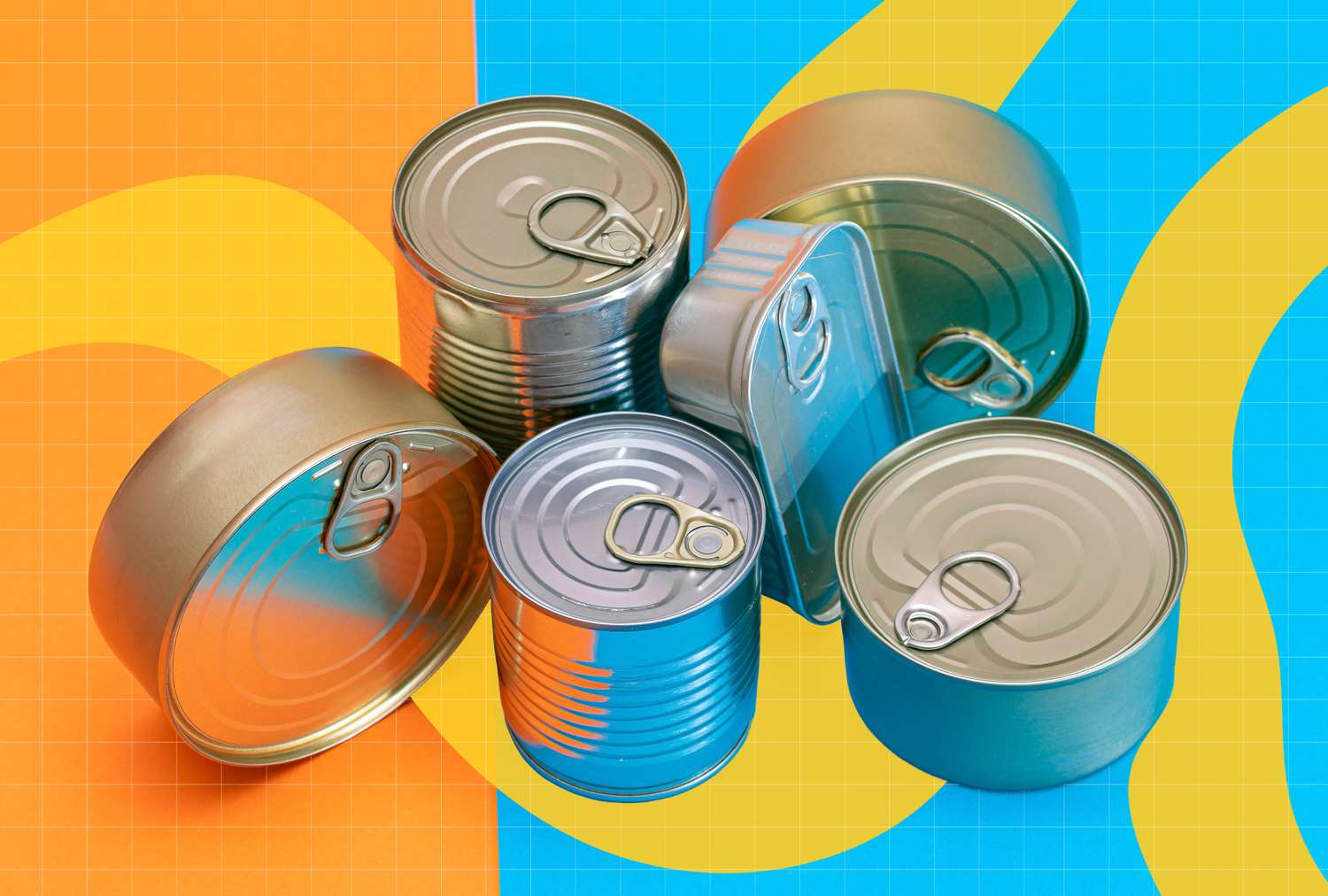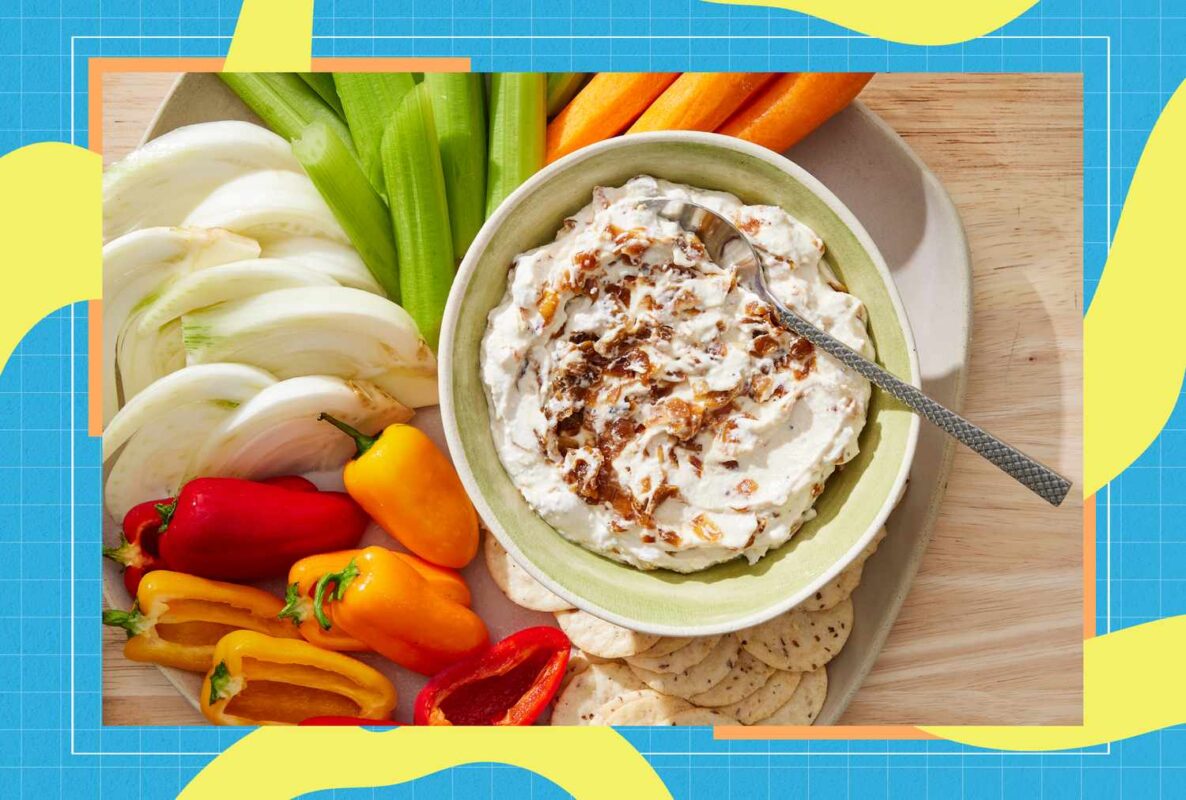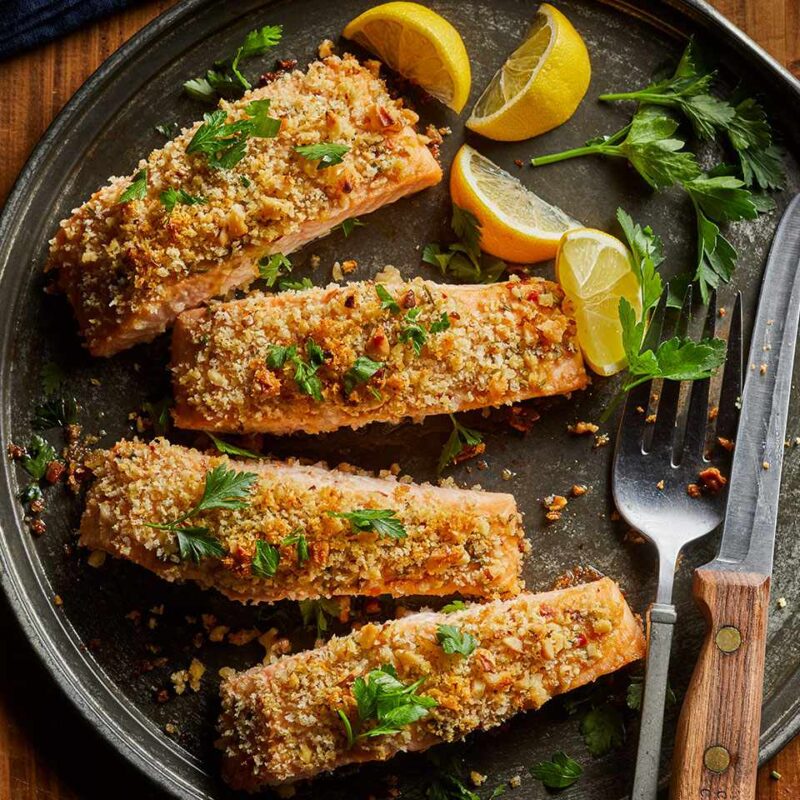Blog
The 5 Best Canned Foods to Reduce Your Risk of Colorectal Cancer

- Diet has a major impact on your risk for colorectal cancer.
- Canned foods that are high in fiber and antioxidants may help reduce your risk.
- Legumes, pumpkin and artichoke hearts are among the best canned foods to help lower your risk.
Colorectal cancer is the third most common cancer in the United States, and its incidence is on the rise. While factors like age, diet, exercise, weight and alcohol intake play a role, diet also has a meaningful impact. In particular, diets low in fiber and high in animal protein, fat and refined carbs have been linked to increased colorectal cancer rates. The good news? Improving your diet doesn’t have to be complicated or expensive. In fact, there are several canned foods you can keep in your pantry to help reduce your risk.
“People often think eating for health means getting super creative in the kitchen or spending lots of time slicing and dicing—but it does not have to be that way. Canned foods can go from can to table in minutes, and they still deliver big on nutrition,” says Liz Weiss, MS, RDN. So which canned foods should you stock up on? Maria Elena Fraga, RD, CDCES, recommends focusing on options that are packed with fiber and antioxidants and low in sodium. Here are the top five canned foods to help reduce your risk of colorectal cancer.
1. Canned Legumes
Canned legumes—including beans, lentils and peas—are Weiss’s top recommendation. In addition to being budget-friendly and easy-to-use, legumes are rich in anti-inflammatory compounds and fiber, both of which may help protect against cancer. One review found intake of both soluble and insoluble fiber was linked with a reduced risk of colorectal cancer.
Weiss notes that canned legumes provide 6-8 grams of fiber per one-half cup serving, “which goes a long way toward the 25 grams per day recommended for women and 38 grams for men that most Americans fall short of,” she adds. Weiss suggests adding canned lentils to pasta sauce, pureeing white beans for “cream-less” soups, tossing soybeans into grain bowls or drizzling canned peas with olive oil and a pinch of salt for a no-fuss side. “[Canned] pulses are shelf-stable, versatile, colorful and ready to eat in minutes—no soaking or long cooking times required,” she adds.
2. Canned Artichokes Hearts
Canned artichoke hearts are rich in fiber, providing 5 grams per 1/2 cup, and some of that fiber is from inulin—a prebiotic fiber. Prebiotic fibers play an essential role in gut health by providing food for good bacteria to thrive. This contributes to a diverse and healthy microbiome, which may reduce the risk of colon cancer. Artichoke hearts also contain plant-based polyphenols—antioxidants that can reduce inflammation. Weiss likes to toss canned artichoke hearts into salads and whole grain pasta dishes for an easy flavor- and fiber-boost.
3. Canned Pumpkin
Pumpkin is another canned food item rich in fiber, providing 3.5 grams in per 1/2 cup. It also contains beta-carotene, a carotenoid that gives the gourd its bright orange color and gets converted into vitamin A—an essential nutrient that supports a healthy immune system. While more research is needed, certain carotenoids, including beta-carotene, have been linked with a reduced risk of colorectal cancer. Weiss suggests adding a few spoonfuls of canned pumpkin to smoothies, oatmeal or yogurt (along with some warming spices) for a fall-flavored breakfast or snack.
4. Canned Soups with Whole Grains
“There is strong evidence that whole grains help to lower colorectal cancer risk,” says Weiss. For a simple lunch or dinner option, she recommends keeping a few cans of whole grain-containing soups in your cupboard. While barley is frequently found in soups, several brands offer varieties featuring other whole grains, like quinoa, brown rice, wild rice or farro. Especially if you have high blood pressure, look for canned soups that are labeled “low-sodium.”
5. Canned Oranges
Foods that contain vitamin C may help reduce the risk of colorectal cancer. Weiss notes that while the evidence is more limited, “vitamin C (an antioxidant) can help reduce oxidative stress and inflammation—two key drivers in cancer development.” One review found that higher intakes of citrus fruits, apples, watermelon and kiwi were associated with a reduced risk of colorectal cancer. When shopping for canned oranges, look for options packed in their own juices, rather than syrup.
Tomatoes are another food that’s high in vitamin C, as well as a potent antioxidant called lycopene. Test tube studies suggest tomatoes may have anticancer properties thanks to their lycopene content. However, research in humans is mixed.
Other Strategies to Help Reduce Your Risk of Colorectal Cancer
When it comes to lowering your risk of colorectal cancer, there are several ways you can adjust your lifestyle to help. Here are a few key strategies:
Get Screened
The American Cancer Society recommends that everyone begin colorectal cancer screening at age 45. However, if you have risk factors for colorectal cancer—such as a family history of the disease or inflammatory bowel conditions—you may need to start screening earlier. Be sure to discuss your personal risk and the best screening plan with a healthcare professional.
Move More
Physical inactivity is linked to an increased risk of both colorectal cancer and obesity—a significant risk factor for colorectal cancer. Luckily, staying active benefits your health and can genuinely be enjoyable. Exercising with a friend or taking your sweat session outdoors can boost motivation even more, as social support and time in nature may enhance feelings of joy and purpose. Tyring going for a walk or hike or participate in community programs like yoga, tennis or pickleball.
Cut Back on Red and Processed Meat
Strong evidence shows that consumption of red and processed meats is linked with an increased risk of colon and rectal cancer. To reduce your risk, it’s recommended to avoid processed meats and consume less than 12 ounces of unprocessed red meat per week. Fraga also cautions against eating canned meats, like corned beef and Spam, as they’re heavily processed and typically high in saturated fat. Instead, aim to consume more plant-based proteins, like beans, lentils and tofu. These foods are typically high in fiber and contain anti-inflammatory compounds.
Avoid Excessive Alcohol Intake
“Drink alcohol in moderation if at all,” Weiss says. If you drink alcohol, limit your intake to no more than 1 drink per day for women or 2 per day for men. Reduce your intake of alcoholic beverages by drinking water between alcoholic drinks or swap them for non-alcoholic versions or low-sugar mocktails.
Boost Fiber Intake
High-fiber foods like fruits, vegetables, nuts, seeds, whole grains and legumes are nutrient-dense, providing ample amounts of vitamins, minerals and antioxidants. Diets rich in fiber are associated with a reduced risk of colorectal cancer. “Fiber keeps foods moving through the GI tract and feeds the beneficial gut bacteria that produce protective compounds like butyrate,” explains Weiss.
Increase your fiber intake by adding colorful fruits and vegetables to each meal, swapping refined grains for whole grains, snacking on nuts and seeds and incorporating legumes into your entrees. Just remember: when increasing fiber intake, increase your fluid intake simultaneously to reduce gas and bloating.
High-Fiber Recipes to Try
Our Expert Take
One of the best ways to reduce your risk of colorectal cancer is by eating a high-fiber diet. To help save money and time, dietitians recommend stocking up on certain canned foods, including legumes, oranges, pumpkin, artichoke hearts and soups with whole grains. In addition to prioritizing fiber, it’s also important to stay physically active, consume alcohol in moderation (if at all), cut back on unprocessed red meat and avoid processed meats. To stay on top of your health, talk with a healthcare professional about your risk for colorectal cancer and when to get screened.











